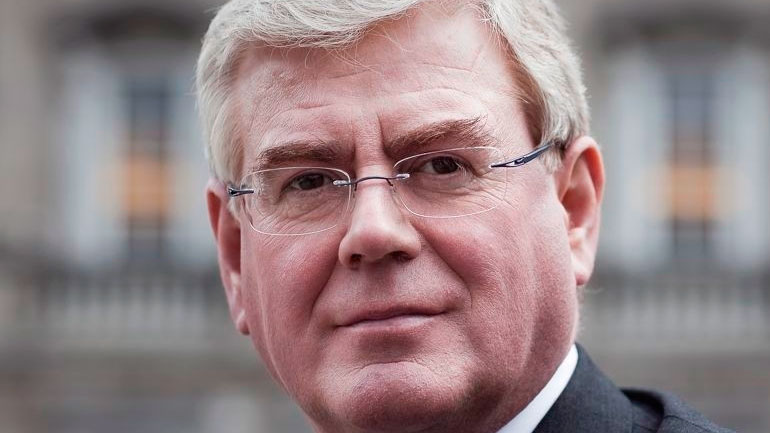The European Union (EU) envoy to Colombia’s peace process met with victims of the conflict who are going through a reparations process in the capital Bogota.
Thursday’s visit of EU representative Eamon Gilmore was part of ongoing international assistance as Colombia’s government reach the final stages of peace negotiations with extreme-left guerrilla group FARC.
Gilmore acknowledged the importance of the work by the Victim’s Unit and said the attention to victims is a progressive initiative in advance of a peace deal being signed which will bring to an en a 51-year conflict.
“This is unique, this unprecedented attention to the victims is being done at the start of a peace process and, in this case, even before the final agreement is signed,” said the EU representative.
The Irish politician experienced the stories of healing through the art of displaced youths aswell as the collective reparation process of the National Association of Peasant Farmers (ANUC) and the Association of African Women for Peace (Afromupaz).
The former Minister for Foreign Affairs and Trade in Ireland who contributed to the peace process in the north of the country in the 1990’s highlighted the importance of the healing process in terms of the overall long-term success of the agreement.
“This event shows that the peace process is not just about the formal end of the conflict, the surrender of weapons, demobilization, but a much broader, more comprehensive process, which has to do with Colombian society and how to build a better society, ” he said.
The director of the Unit for Victims, Paula Gaviria also highlighted the significance of transformative reparation, as these initiatives aim to reach 6.2 million people affected by violence in Colombia.
“Today Colombia began a period that has us very excited, with much hope to achieve the end of the conflict,” said Gaviria, adding that this process seeks to achieve a “more inclusive, more respectful of difference, human rights Colombia and obviously inclusive also of the victims.”
Eamon Gilmore was appointed as envoy last October and this is his third visit to the South American country since accepting the mission.
Ana Paula Zacarias, ambassador of the EU explained their strong desire to play a supporting role in Colombia’s peace process.
“The European Union has been, is and will be next to Colombia at this time. We are standing up this trust to support the peace process background, but that’s like a drop of water from a river that is coming from behind, “said Zacharias, recalling that the EU has been working for 15 years in areas such as rural development or peace laboratories in the country.
As the negotiations advance towards their March 23 deadline, Gilmore sees the signing of the deal as potentially one of the greatest stories of the 21st century.
“In the global context of what is happening in Havana now, the peace of Colombia will be one of the biggest stories of the century,” he said at the Workshop.
The Irish diplomat, shared his experience of the peace process in his own country, emphasizing the important role of the public in the process.
“The success of the process depends on people in Colombia wanting to know and understand the agreements,” he said.
As he addressed a forum of journalists, he also highlighted the important role of the media in any peace process.
“We also had uncertainty but the media never lost sight of the peace process, (..), according to the experience of Ireland, the media were very important in the implementation of peace”.
President Juan Manuel Santos sent a message of greetings to the participants in which he recalled that journalism “plays an essential role in ensuring the functioning of democracy.”
If Colombia’s government and the FARC rebels sign the peace agreement on the March 23 deadline, it would end the guerrillas’ 51-year war against the state that has left more than 260,000 Colombians dead and millions displaced.


